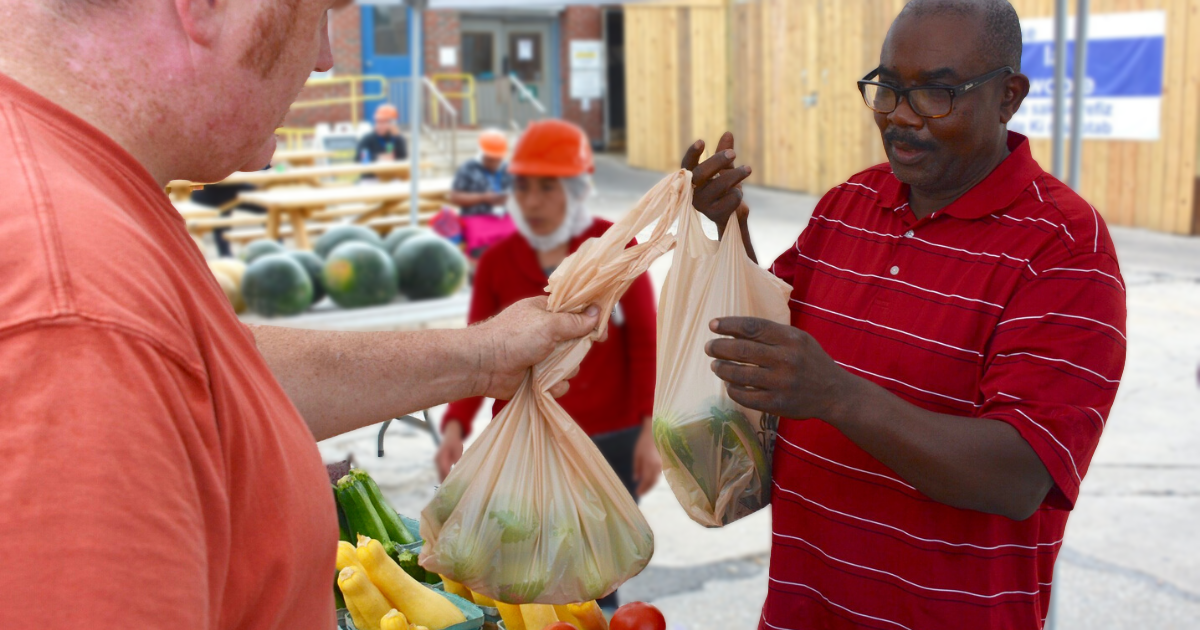
Obesity Prevention Efforts (2019)


ISSUE
Obesity rates in Delaware are above the national average. More than one in three adults is obese, with the same statistic for children who are overweight or obese. According to The State of Obesity: Better Policies for a Healthier America report from 2018, 11th highest overweight and obesity rate in the nation. Heart disease, stroke, type 2 diabetes and some types of cancer are all obesity-related causes of death, preventable through a healthy diet and physical activity. But obesity and obesity-related health issues are of special concern for low-income individuals, a group that has a significantly higher diabetes risk than other income groups. (In Delaware, 17.8% of households make less than $25,000 a year.) It is essential that obesity prevention efforts focus on the socio-ecological model of change and are rooted in behavior change theory.
RESPONSE
The Dietary Guidelines for Americans recognizes that everyone has a role in helping support healthy eating patterns in multiple settings nationwide, specifically where people live, learn, work, play, pray and shop. For this reason, the SNAP-Ed plan for Delaware has changed their model over the past three years, aiming to incorporate policy, systems and environmental change strategies (PSEs) into their work. This type of strategy, in conjunction with direct education, helps ensure that access to engage in healthy behaviors is equitable for all communities and individuals throughout our state.
In 2019, the University of Delaware Cooperative Extension worked on initiatives that both improved access to fresh, healthy foods where people live and work, and educated individuals on the importance of healthy eating at community sites and schools. The Delaware Fit Biz (DFB) worksite initiative, funded with a grant from the Supplemental Nutrition Assistance Program–Education (SNAP-Ed) program, implemented these strategies in two low income worksites. These strategies included the addition of physical activity clubs and onsite farmer’s markets (accepting food benefits like WIC and SNAP), improving breastfeeding support, and improving access to free drinking water and healthy food options at work. UD Cooperative Extension also found additional funding opportunities to assist with the implementation of further worksite changes.
In addition to these efforts, community gardens were supported as a way to increase access to healthy foods directly in communities, as well as increase education about where food comes from. Educational sessions offered to both youth and adults focused on how to shop healthy on a budget, supporting the goals of increasing knowledge for behavior change.
RESULTS
As a result of these efforts, two worksites implemented the Delaware Fit Biz initiative,
through which …
- 475 people were reached by the implementation of onsite farmer’s markets
- 80 people were reached by the implementation of worksite physical activity clubs
- 3,693 people were reached by the implementation of free drinking water at the worksite
- 400 people were reached by the implementation of healthy recipe taste testing in worksite cafeterias
- 1,493 people were reached by the implementation of healthy dining options in worksite cafeterias
Under separate funding,
- 5 community gardens improved access to fresh fruits and vegetables for youth and adults
- Over 1,000 low-income students received direct education in the form of "Up for the Challenge"
- 250 adults received information on healthy eating and food safety through the "Food Skills" program
